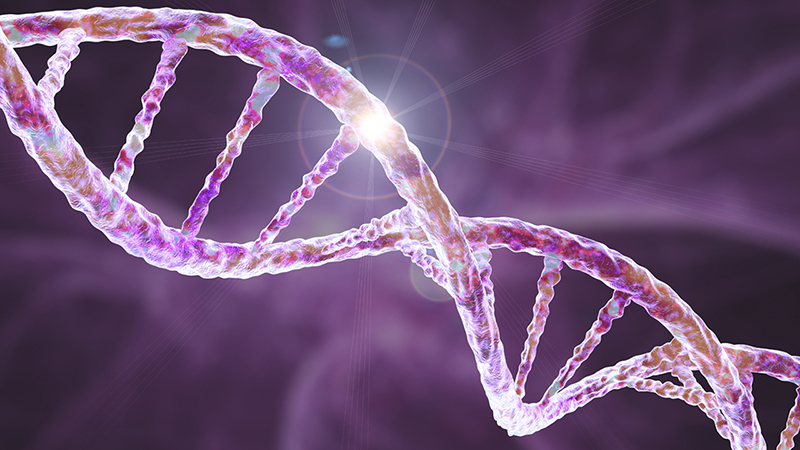Can Acupuncture Help Your Heart?
Northwestern Medicine Study Reveals Acupuncture’s Potential in Improving Outcomes After Cardiac Surgery
Published September 2023
Heart surgery is a lifesaving procedure, but it can contribute to physical discomfort and surgical side effects like atrial fibrillation (irregular heartbeat), which can lead to stroke. Acupuncture, a potentially effective treatment for heart rhythm disorders, pain and nausea, is now being studied for use after cardiac surgery at Northwestern Medicine.
“ACU-Heart is a clinical trial designed to assess the feasibility of daily acupuncture in the hospital setting after open-heart surgery, which has not been examined to date,” says lead investigator, Kim L. Feingold, PhD, a cardiac psychologist and the founder and director of Cardiac Behavioral Medicine at the Northwestern Medicine Bluhm Cardiovascular Institute at Northwestern Memorial Hospital.
As practitioners in cardiac behavioral medicine, Dr. Feingold and her team focus on the psychological side of a patient’s cardiovascular journey. This may include a cardiac event, a new diagnosis, or surgery and recovery. “We know that the mind and body are connected,” she says. “We’re always looking for ways to improve the patient experience and reduce the emotional consequences of heart disease, which can include depression and anxiety.”
Understanding Acupuncture
Acupuncture is a component of traditional Chinese medicine and believed to stimulate the nervous system. The practice involves inserting thin needles through the skin at specific points along the body to influence the flow of energy and promote healing. Acupuncture has been shown to have pain-relieving, anti-inflammatory and anti-nausea effects.
Understanding ACU-Heart
Acupuncture after open-heart surgery is feasible and well tolerated by patients.— Kim L. Feingold, PhD
In the ACU-Heart pilot trial, consenting patients undergoing valve surgery with no prior history of atrial fibrillation (AFib), were randomly sorted into two groups. One group received standard care after surgery and the other received daily acupuncture intervention from the day after surgery until discharge.
“The acupuncture was delivered to patients in their hospital room by three licensed acupuncturists from Northwestern Medicine Osher Center for Integrative Health,” explains Dr. Feingold. “The acupuncturists coordinated timing with patients and medical providers to ensure that acupuncture was not disruptive to routine medical care.”
Dr. Feingold says that she and fellow researchers wanted to answer three main questions with the ACU-Heart study:
- Would patients embrace acupuncture during such a significant event as heart surgery?
- Is it logistically feasible in a cardiac surgery setting to provide daily acupuncture to patients?
- Does acupuncture impact medical outcomes such as AFib and post-surgical symptoms such as pain, nausea, stress and anxiety?
The findings were positive on all three fronts.
“We learned that acupuncture after open heart surgery is feasible in this fast-paced environment — even in the intensive care unit the day after surgery — and was well tolerated by patients with no adverse effects,” says Dr. Feingold. “The majority of patients had no prior history with acupuncture, demonstrating their openness to receive integrative therapies after surgery. Overall, patients reported that it was a pleasant and positive aspect of their cardiovascular surgery recovery.”
She notes that some of the nurses commented that patients were more relaxed and calmer after acupuncture. “In a future study, we can fold in measuring the impact that acupuncture intervention has on the care team,” says Dr. Feingold.
From the study, the research team found that acupuncture after heart surgery was linked to:
- Lower rates of post-operative atrial fibrillation (POAF) by 58%. Patients in the study who received acupuncture had a 14% incidence of POAF compared with 33% in the standard control group.
- Reduced pain, nausea, stress and anxiety. Based on patient reporting, these surgical side effects were reduced with each acupuncture session.
- Less time spent in intensive care. Patients who received acupuncture spent about seven fewer hours in the intensive care unit than study participants who didn’t receive acupuncture.
- A reduced need for antiarrhythmic medication at the time of discharge by 68%. Approximately 10% of patients who received acupuncture were on a heart rhythm medication (amiodarone) at the time of discharge compared to 27% in the standard control group.
What’s Next?
Dr. Feingold says that a larger, multicenter trial with patients undergoing a broader range of heart operations is needed to better understand the impact of acupuncture on the severity and timing of POAF, as well as the post-operative physical and emotional symptoms such as pain, nausea, depression and anxiety.
“It's exciting to demonstrate the potential role of integrative therapies like acupuncture in the cardiovascular setting — including after cardiac surgery,” says Dr. Feingold. “There's more to be done, but the ACU-Heart pilot trial certainly demonstrates significant promise.“







